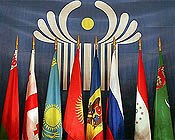(Issue Brief) The curious case of Edward Snowden’s stay in the Sheremetyevo airport transit zone in Russia has highlighted both the promise of U.S.-Russian security relations and their limitations.
Whether the issue is extraditing Snowden, or tackling more significant concerns such as political transition in Syria or nuclear arms reductions, Russian cooperation would be of great benefit to the United States in matters of national and international security.
But there is only so much the United States can do to turn the potential for Russian cooperation into practice. Russian authorities often have interests that militate against cooperation, interests that the United States is unwilling or unable to counter.
At the same time, the United States needs to keep the significance of Russian intransigence in perspective. While security cooperation with Russia can be valuable, limits to this cooperation are not an overriding obstacle to achieving U.S. objectives; the challenges lie at least as much in the implementation of our own policies. As importantly, efforts to overcome the limits of Russian cooperation need not come at the expense of other aspects of U.S. policy toward Russia. […]
See the full Issue Brief | © Center for American Progress











